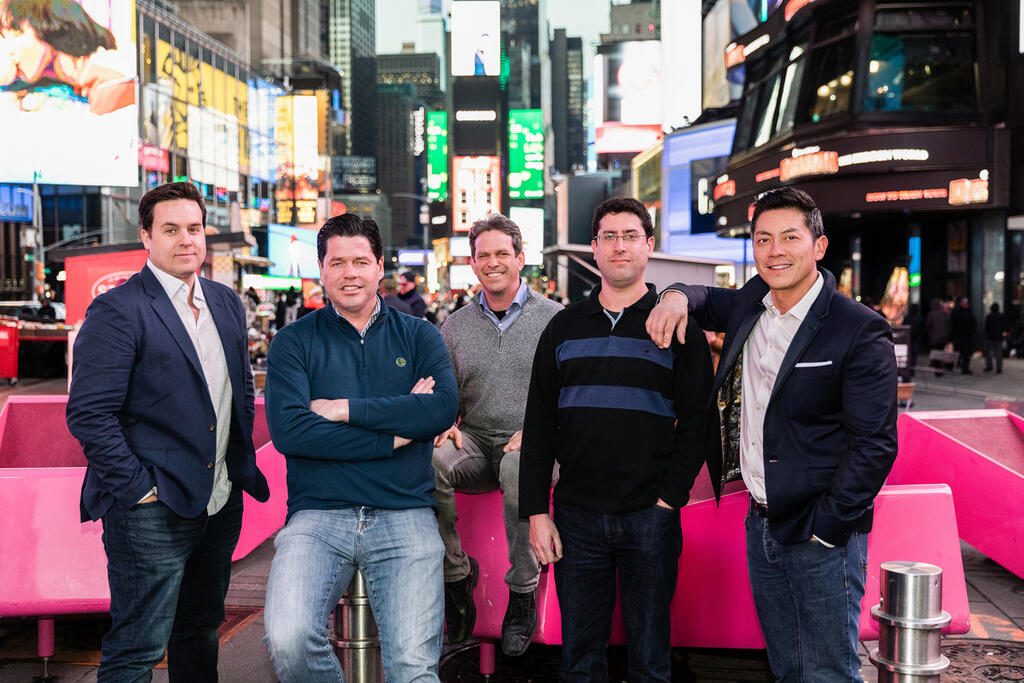
Vast isn’t the next Wiz, but it’s quietly headed for a $25B valuation
Vast has built a deep-tech moat and turned cash-flow positive - with Nvidia’s support and none of Wiz’s media buzz.
The reports of a fundraising round at a staggering $25 billion valuation for Israeli high-tech company Vast Data on Wednesday sparked inevitable comparisons to Wiz, which was sold to Google for $32 billion earlier this year. But if Wiz is one kind of Israeli unicorn, Vast is its mirror opposite.
It’s hard to find two high-valued companies in Israeli tech with more different DNA. Even before its blockbuster sale to Google, Wiz was a household name. Vast, by contrast, remains little known, even within the local ecosystem. That’s exactly how its founders, Renen Hallak and Shachar Fienblit, prefer it.
The contrast between these two largest private Israeli tech companies by valuation underscores how deeply a startup's character is shaped by the personalities and philosophies of its founders, even at multibillion-dollar scale.
Wiz CEO Assaf Rappaport has long been a public face of Israeli tech, frequently featured in the media, a leader in the judicial reform protests, and an advocate for employee wellbeing. The company is known for lavish employee perks: exotic vacations, concerts featuring top Israeli artists, and extravagant parties. Even during the 2022 tech crisis, as others cut costs, Rappaport insisted no investment in employee experience was unjustified.
Vast, which had already raised funds at a $9 billion valuation by the end of 2023 - in the midst of war in Israel - operates at the opposite end of the spectrum. Its culture is modest to a fault. The company’s 300 Israeli employees work in basic offices at Tel Aviv’s Expo convention center . Even after reaching unicorn status, Vast remained in the shared workspaces of the Mixer complex. No parties, no headlines, no celebrity CEO appearances, just quiet focus.
Not surprisingly, given its frugal approach and conservative culture, Vast has half the number of employees Wiz does and has long maintained positive cash flow. Still, the company allows employees to realize value regularly through secondary offerings.
What unites both companies is world-class products. But even here, the similarity ends. Wiz thrives in the hypercompetitive cybersecurity sector, where it outpaces rivals through both superior technology and aggressive marketing. Vast, meanwhile, competes in a niche with far fewer players. Its technology is deep, capital-intensive, and hard to replicate, making barriers to entry prohibitively high.
And yet, Vast has captured the attention of a very influential person: Jensen Huang, founder and CEO of Nvidia. Three weeks ago, at the Computex conference in Taiwan, Huang devoted a significant portion of his keynote to Vast’s technology and how it complements Nvidia’s processors. It wasn’t his first endorsement. In late 2024, Huang recorded a ten-minute podcast with Renen Hallak on the future of AI, spotlighting Vast’s pivotal role.
So what makes Vast worth $25 billion, and worthy of such praise from the most powerful person in AI? The answer is technical, but the takeaway is simple: without Vast’s ultra-fast storage and retrieval solutions, Nvidia’s GPUs can’t perform at their best. Vast’s software acts like an operating system for AI infrastructure, enabling the kind of real-time access to data that modern AI models demand.
Its technology also solves a major pain point in enterprise IT: managing unstructured data like emails, customer service logs, PDFs, and multimedia - “messy” information that forms the real memory of a business. Since its founding in 2016, Vast’s key innovation has been applying flash memory, once considered too expensive for large-scale storage, to enterprise needs. Using proprietary software (now decoupled from hardware), it compresses and extracts far more from flash, slashing costs and making it viable for AI-scale workloads.
Initially used in cloud migration projects, demand for Vast’s technology exploded with the generative AI boom. By 2023, it had reached $200 million in annual recurring revenue (ARR), fulfilling its promise to triple revenue annually. Industry estimates suggest that by Q1 2025, VAST had hit $1 billion in ARR.
Unlike many enterprise software companies that rely on short-term contracts, Vast signs customers to 5–7 year subscriptions. Its product stickiness is unusually high; once integrated, customers rarely churn. Its client roster includes global banks, Pixar, Elon Musk’s xAI, and of course, Nvidia, which invested in the company’s penultimate funding round in 2021.
Another strategic partner is CoreWeave, the American AI cloud provider that went public two months ago and has since surged to a $77 billion valuation. CoreWeave integrates Vast’s storage layer into its infrastructure stack, further fueling investor excitement.
Interestingly, one of Vast’s strongest rivals is also Israeli: Weka.io, which raised $140 million at a $1.6 billion valuation last year. Other competitors include Pure Storage, valued at $17 billion, and Databricks, which was last valued at $62 billion and is widely expected to IPO soon.
Hallak founded Vast in 2016 and recruited Fienblit and Jeff Denworth (who no longer holds an operational role). The trio met not in elite military units, but while working at enterprise storage companies. Vast’s headquarters are in the U.S., with development centers in Tel Aviv and Haifa. The company has raised nearly $400 million to date, modest by the standards of its valuation. Its profitability has allowed it to be selective in fundraising, often raising capital more to signal value than to extend runway.
Its investor list includes Nvidia, Tiger Global, Goldman Sachs, Fidelity, General Atlantic, NEA, BOND, Next47, Greenfield, and Israeli VC 83North.
The current round, still in progress, could be a pivotal moment, not only for Vast, but for Nvidia. It may be the last chance for a buyer to acquire Vast before valuations soar beyond reach. A leak to TechCrunch about the fundraising seems designed to nudge valuation toward $30 billion, and to signal that time is running out for potential acquirers.
Yet those close to Vast’s founders say they prefer independence and are already eyeing an IPO. And if the AI boom continues, a $100 billion market cap may not be out of reach.














